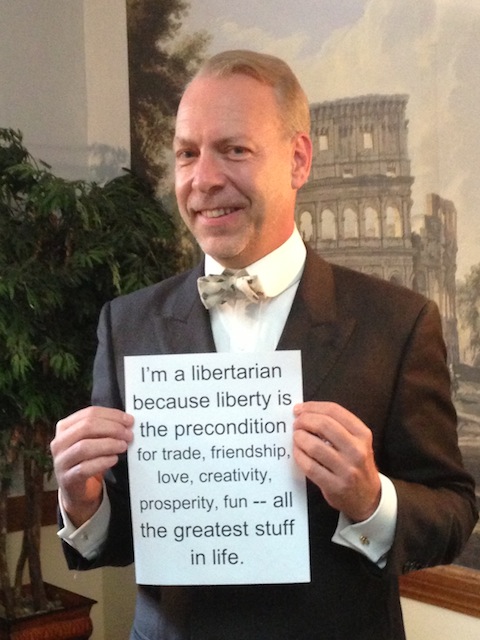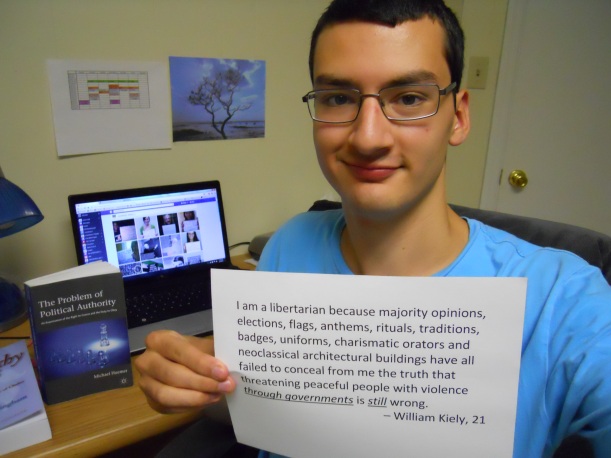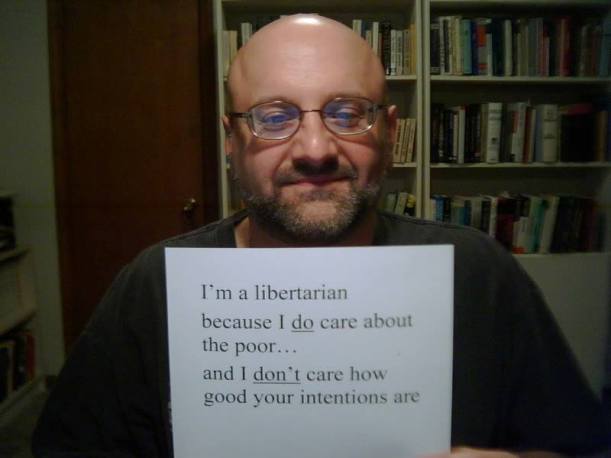Following is my Amazon review for Frank Karsten and Karel Beckman’s book Beyond Democracy, which I received when I made a $25 donation to Tomasz Kaye’s crowd-funding campaign for his wonderful short animated film You Can Always Leave, the sequel to the famous George Ought to Help:
 The main merit of this book is its short, accessible, and highly readable defense of the view that there are better ways to organize society than democracy. Any friend, co-worker, or family member could get through this book, even if he or she has no interest in politics.
The main merit of this book is its short, accessible, and highly readable defense of the view that there are better ways to organize society than democracy. Any friend, co-worker, or family member could get through this book, even if he or she has no interest in politics.
I am a libertarian anarchist and strongly agree with the authors’ opposition to democratic governments. I fully understand that there is a shortage of libertarian books that are accessible to the general public. In fact, the only other libertarian book I am aware of that is of comparable accessibility and readability to “Beyond Democracy” is Dr. Mary J. Ruwart’s book Healing Our World.
You may thus be wondering, why am I giving “Beyond Democracy” only three stars?
My reason is that I do not think that the arguments contained within the book are good enough to persuade scholars, academics, or even average passionate supporters of other political ideologies to support libertarianism and oppose democracy. I think more rigorous arguments must be provided to defend the libertarian position.
You might point out that the purpose of this book was to reach a general audience, not to persuade intellectuals, so my low rating is not deserved. But, the reality is that that some of the people who read this book who support democracy and are skeptical of libertarianism may not be persuaded by the simple arguments contained within the book.
It is to them I wish to say: this is not the best book out there. Do not conclude that the views expressed in “Beyond Democracy” are “laughable” until you have read more rigorous defenses of them, as can be found in such books as Murray Rothbard’s For a New Liberty, Hans-Hermann Hoppe’s Democracy–The God That Failed: The Economics and Politics of Monarchy, Democracy, and Natural Order, and Michael Huemer’s The Problem of Political Authority: An Examination of the Right to Coerce and the Duty to Obey.
Note that I have not read Hoppe’s “Democracy–The God That Failed,” yet I listed it anyway since my understanding is that many libertarians who have read it believe it provides a strong argument against democratic governments. In fact, it is mentioned in the postscript of “Beyond Democracy”:
Mises and Rothbard never produced a rigorous analysis of the phenomenon of democracy. The first libertarian thinker to do so is the German economist Hans-Hermann Hoppe, who lives and works in the US. His book Democracy — The God that Failed (2001) is for the time being the standard libertarian work in this area. [page 91]







